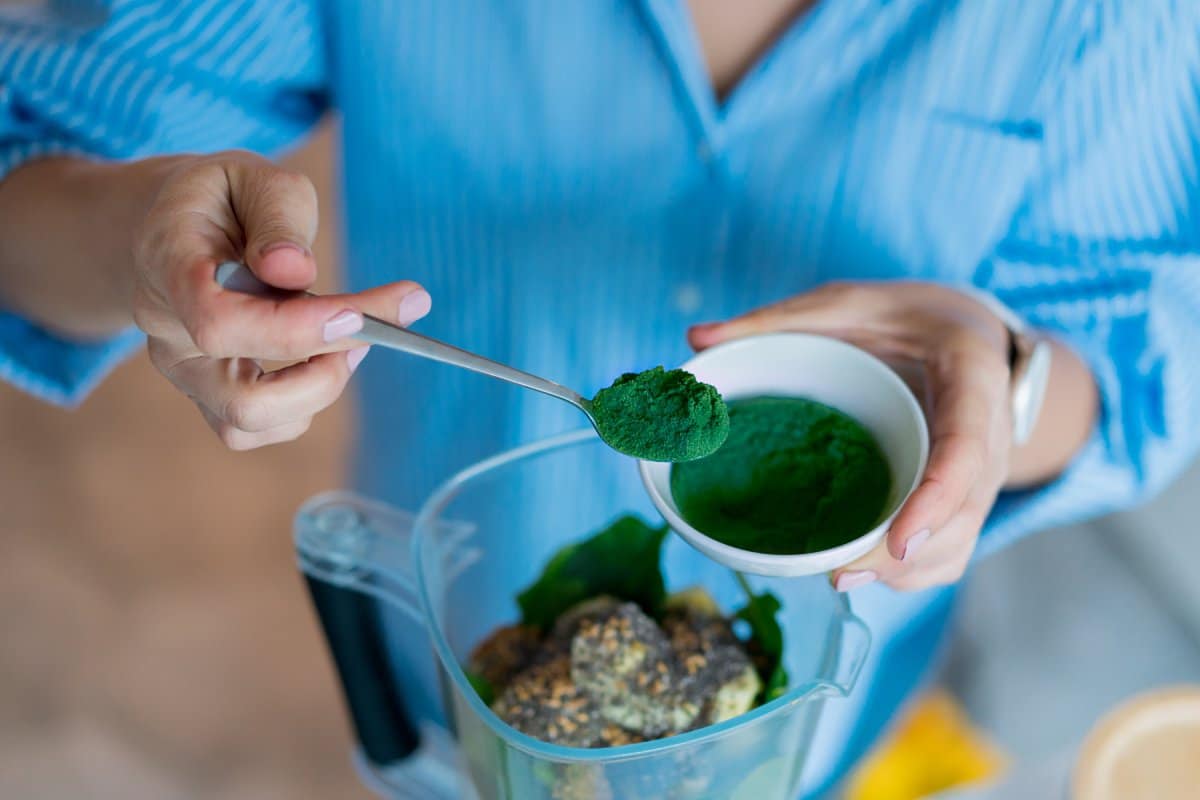Think you’re a health food expert, feeding your family only the best? You might be wrong. Some so-called superfoods could be doing more harm than good. Are you unknowingly putting your family’s health at risk with these deceptive ingredients?
1. Agave Nectar

Marketed as a healthy alternative to sugar, agave nectar is actually loaded with fructose, which can wreak havoc on your liver. It’s no better than high fructose corn syrup and could be worse for your family’s health.
2. Coconut Oil

Coconut oil has been hyped as a superfood that can do no wrong. But did you know it’s packed with saturated fat? Regular consumption could raise your cholesterol levels, increasing the risk of heart disease.
3. Goji Berries

Goji berries are touted as antioxidant powerhouses, but they can interact with medications like blood thinners. If you’re giving these to your kids or taking them yourself, you might be risking serious health complications.
4. Quinoa

While quinoa is a good source of protein and fiber, it’s also known for its saponin content, which can cause digestive issues. Improperly rinsed quinoa can lead to stomach pain and other gastrointestinal problems.
5. Kale

Yes, kale is nutritious, but it’s also high in oxalates, which can contribute to kidney stones. If you’re juicing kale every day and feeding it to your kids, you might be setting them up for a painful surprise.
6. Almond Milk

Almond milk seems like a great alternative to dairy, but many brands are loaded with added sugars and have very little nutritional value. Plus, the production of almonds is extremely water-intensive, raising ethical and environmental concerns.
7. Chia Seeds

Chia seeds are praised for their omega-3 content, but they can also cause choking if not prepared properly. These tiny seeds expand in water, and if eaten dry, they can get stuck in your throat.
8. Spirulina

This algae supplement is packed with nutrients but can be contaminated with harmful toxins if not sourced carefully. Feeding contaminated spirulina to your kids can lead to serious health problems.
9. Apple Cider Vinegar

Often hailed as a cure-all, apple cider vinegar can erode your teeth enamel and cause digestive issues if consumed in excess. If you’re adding this to your child’s diet, it’s time to reconsider.
10. Acai Berries

Acai bowls look Instagram-worthy, but they are often loaded with sugar and calories. Additionally, the production of acai can have negative impacts on the Amazon rainforest, leading to ethical concerns.
11. Matcha

Matcha tea is famous for its antioxidants, but it can also contain high levels of lead if the leaves are not sourced from a reputable producer. Serving this to your kids could expose them to toxic heavy metals.
12. Gluten-Free Packaged Foods

Unless you or your child has celiac disease, gluten-free doesn’t necessarily mean healthier. Many gluten-free products are packed with sugar and unhealthy fats to make up for the lack of gluten.
13. Goitrogenic Foods

Superfoods like broccoli, Brussels sprouts, and soy can interfere with thyroid function if consumed in large amounts. If you’re feeding these to your kids daily, you might be impacting their growth and metabolism.
14. Dark Chocolate

While dark chocolate is often considered a health treat, it can be high in heavy metals like cadmium and lead. Make sure you’re not overloading your family on this potentially toxic indulgence.
15. Green Smoothies

Green smoothies can be nutritious, but many are loaded with fruit juices high in sugar, negating the benefits. These sugar bombs can lead to weight gain and insulin resistance over time.
16. Kombucha

This fermented tea is praised for its probiotics, but it can also contain high levels of sugar and alcohol. Too much kombucha can upset your stomach and lead to other health issues, especially for kids.
17. Turmeric Supplements

Turmeric has anti-inflammatory properties, but taking it in supplement form can lead to digestive issues and interact with medications. Stick to using it in your cooking rather than as a daily pill.
18. Activated Charcoal

Often marketed for detoxing, activated charcoal can bind to nutrients and medications, preventing their absorption. If you’re giving this to your kids, you could be depriving them of essential vitamins and minerals.
19. Seaweed Snacks

Seaweed is a great source of iodine, but too much can lead to thyroid problems. Moderation is key, especially when giving these snacks to your children.
20. Soy Milk

Soy milk is a popular dairy alternative, but it contains phytoestrogens, which can disrupt hormone balance. Regular consumption by kids could potentially impact their development.
21. Juice Cleanses

Juice cleanses might seem like a quick health boost, but they often lack fiber and essential nutrients. They can lead to blood sugar spikes and crashes, making them a poor choice for a balanced diet.
Rethink Your Superfoods

It’s time to take a hard look at what you’re feeding your family. Not all superfoods are as super as they seem, and some can be downright dangerous. Stay informed and make smarter choices for your loved ones’ health. Are you ready to challenge the superfood myth?
The post The Dark Side of Superfoods: Health Foods That Aren’t What They Seem first appeared on Mama Say What?!
Featured Image Credit: Shutterstock / Okrasiuk.
For transparency, this content was partly developed with AI assistance and carefully curated by an experienced editor to be informative and ensure accuracy.





